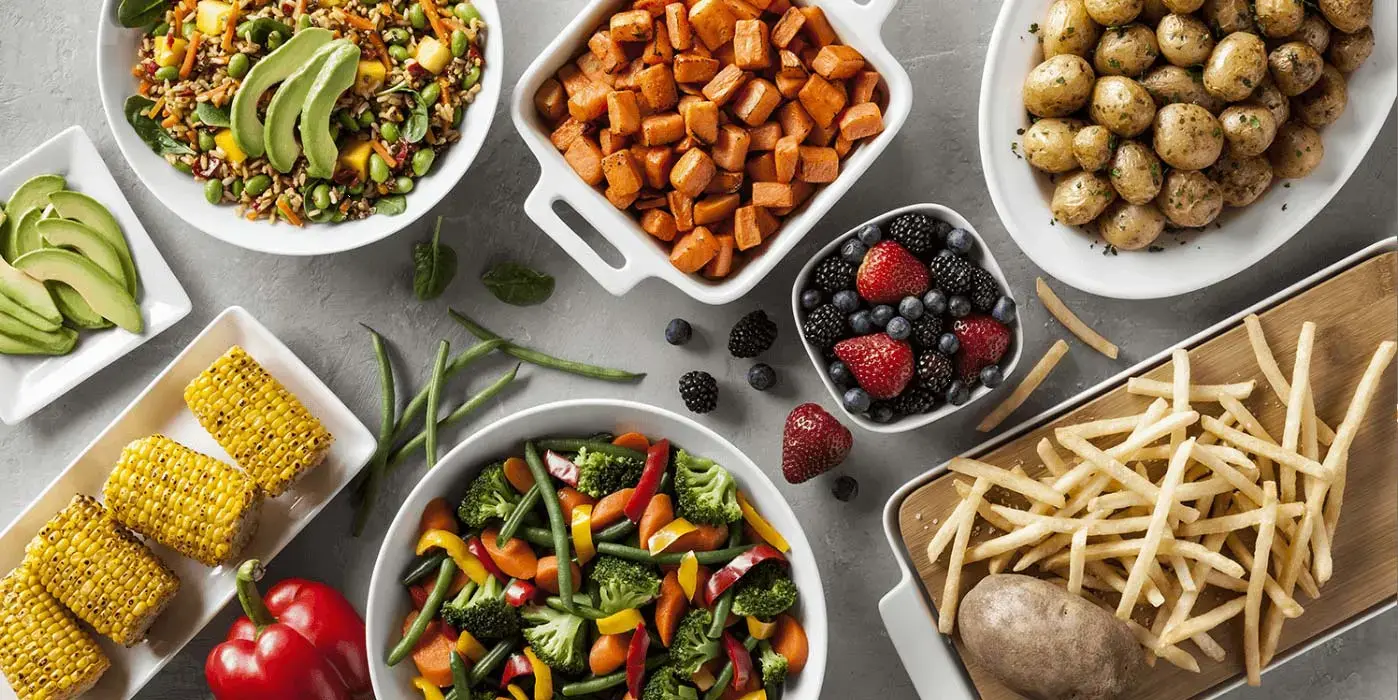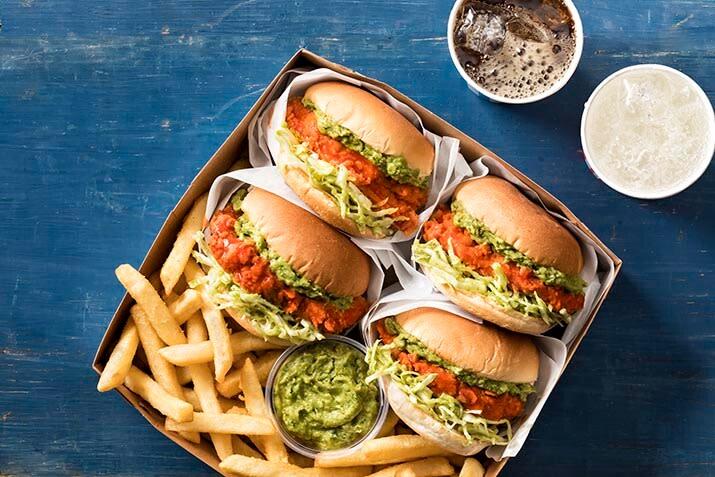Mercadeo
Cómo usar Google para ayudar a los clientes a encontrarte
4/14/2021

Crear un sitio web para tu restaurante no significa necesariamente que verás más flujo de clientes en línea o en persona. Primero, las personas tienen que encontrarte en línea y, para eso, necesitas Google.
Cuando se trata de búsquedas, Google es el rey. Pero, ¿cómo te aseguras de que tu negocio aparezca en Google Search, Google Maps o Google Places? La respuesta es la optimización del motor de búsqueda (Search Engine Optimization, SEO), que comprende varias estrategias para aumentar tu visibilidad en los resultados de la búsqueda.
En este artículo, hablaremos sobre tres estrategias principales de SEO: crear y mantener un perfil de Google My Business (Mi Negocio), usar el rastreador de URL de Google en tu sitio web y publicitar con Google. Usa estos sencillos consejos para asegurarte de que tu establecimiento sea fácil de encontrar en línea.
1. Crea un perfil de “Google My Business”.
La importancia de crear y mantener un perfil de Google My Business para SEO no puede ser subestimada. ¿Las buenas noticias? Es gratuito. Además, solo al crear un perfil te coloca por encima de innumerables otros restaurantes que aún no lo han hecho.
Google te da la mano a través de este sencillo proceso paso a paso. Una vez que te inscribas, podrás hacer un seguimiento de los datos de tu negocio, publicar fotos y promociones, responder a los clientes y aparecerás en Google Search y Google Maps.
Primero, verifica si tu restaurante ya tiene una cuenta de Google My Business. Intenta iniciar sesión aquí, para empezar. ¿No ves nada? Busca tu restaurante en Google. Si no ves un perfil como el que aparece a continuación (en el lado derecho en una computadora de escritorio), probablemente no tengas una cuenta de Google My Business.
¿No tienes una cuenta de Google My Business? Simplemente crea uno. Visita el sitio web de Google My Business e inicia sesión en Google (o “crea una cuenta”). Ingresa la dirección de tu restaurante. Selecciona si deseas que tu restaurante aparezca en Maps. Selecciona una categoría comercial e ingresa tu dirección de sitio web (URL) y número de teléfono. Luego selecciona Finalizar. Google te pedirá que verifiques tu negocio. Asegúrate de hacerlo.
Verifica tu cuenta de Google My Business. Mira en la esquina superior izquierda para ver “Correo” cerca de donde está fijado tu restaurante en el mapa. Ingresa tu nombre y selecciona “Enviar tarjeta postal”. En unos días (o semanas), recibirás una tarjeta postal de verificación de Google. Sigue las instrucciones en la tarjeta postal e ingresa el código numérico que contiene cuando se te solicite. Luego, estarás completamente verificado con Google.
Si ya tienes un perfil, asegúrate de que esté completo. Inicia sesión en Google My Business y selecciona tu restaurante. En el menú de la izquierda, selecciona “Información” y luego haz clic en el lápiz de “Editar” junto a cada sección. (Si aún no has verificado tu cuenta de Google My Business, no podrás editar esta información).
Agrega los detalles de tu restaurante, el horario de atención y la información de contacto. Estos detalles incluyen tu dirección, horarios (así como horarios de feriados), accesibilidad, número de teléfono, nombre corto, etc. Agrega “categorías adicionales” a tu perfil si tu negocio puede clasificarse en otros tipos de instalaciones o servicios que ofreces. Por ejemplo, si tienes una sala de eventos en el mismo lugar, puedes agregar esa categoría (o similar) para que las personas que busquen en línea también puedan encontrarte mediante esas palabras clave.
Agrega fotografías y videos de tu comida y las áreas de comedor.. Selecciona Fotografías en el menú de la izquierda y el tipo de medio que te gustaría subir (video o fotografía). Puedes subir uno de tres tipos de imágenes fijas: una fotografía de portada, fotografías adicionales o tu logotipo. Todas las fotografías deben tener un mínimo de 720 x 720 píxeles, estar en formato .png o .jpg, y tener un tamaño de archivo inferior a 5 megabits. Los videos deben tener un tamaño de archivo inferior a 100 megabits, una resolución de 720p o superior, y una duración de 30 segundos o menos.
¡No olvides agregar tu menú! Usando el menú de Información en la izquierda, desplázate hasta la sección de menú y selecciona “Agregar o editar artículos”, luego haz clic en “Agregar menú”. Desde aquí, puedes agregar uno o más menús para diferentes momentos del día, etc.
Publica en tu página de Google My Business. Publicar aquí funciona de manera muy similar a Facebook y puede ayudarte a obtener más visibilidad en las búsquedas de Google. Hasta ocho de tus publicaciones aparecerán en una búsqueda (las más recientes primero), aunque esto depende del algoritmo de Google. Para hacer una publicación, haz clic en “Publicaciones” en el menú de la izquierda y selecciona lo que deseas publicar. Estas pueden incluir ofertas especiales, imágenes, eventos y más. Ten en cuenta que estas publicaciones se eliminan automáticamente después de siete días, así que asegúrate de publicar al menos una vez a la semana.
Estos son algunas pautas para las publicaciones:
• Asegúrate de que cumplan con las reglas de Google.
• Mantén el contenido breve, con un llamado a la acción claro. Dos oraciones cortas son perfectas.
• No publiques llamados a comprar ni precios específicos, a menos que se trate de un evento.
• Agrega elementos visuales a las publicaciones para hacerlas más efectivas. Puedes agregar hasta 10 videos
(Intenta enlazar desde YouTube) e incluye imágenes por publicación, incluidas animaciones GIF.
Revisa los “insights” y análisis de tu perfil de Google My Business
Inicia sesión en Google My Business y selecciona “Insights” desde el menú de la izquierda. Desde aquí, puedes ver una gran cantidad de información útil:
• Qué palabras clave y frases están utilizando los clientes para encontrarte
• Cómo los clientes están buscando tu restaurante (Búsqueda de Google vs. Google Maps)
• Qué acciones tomaron los clientes (llamar, visitar el sitio web o solicitar direcciones)
• Dónde se encontraban los clientes (por código postal) cuando hicieron clic para obtener direcciones
• Qué fotografías vieron los clientes a través de tu perfil
• Cuántas llamadas recibiste a través de tu perfil, con un desglose por día y hora
Siempre responde a tus reseñas. Otro aspecto importante de tu perfil es la sección de reseñas de clientes. Google incorpora reseñas directas y reseñas de otros sitios web populares como TripAdvisor, una característica popular entre los usuarios. Responder a tus reseñas, especialmente las reseñas negativas, demuestra que te importa. Nunca participes en una discusión de “venganza” con el reseñador en línea. Ofrece llevar la conversación fuera de línea y ver si puedes solucionar el problema.
Debes mantenerla actualizada Planifica revisar tu página de Google My Business al menos una vez cada trimestre para asegurarte de que tu información esté al día. Google ofrece una aplicación para teléfonos Google My Business (iPhone y Android) para que sea más fácil.
2. Ingresa en el índice de Google.
¿Sabías que puedes enviar tu sitio web a Google para ayudar a que aparezca en los resultados de búsqueda? Si su sitio web está listo para su visualización, puedes enviarlo a Google Search Console URL Crawler. Google agrega nuevos sitios a su índice y actualiza los existentes cada vez que recorren la web. Lamentablemente, no hay garantía de que Google agregue todas las URL enviadas al índice, pero no está de más ponerlo a disposición para aumentar tu presencia en la optimización del motor de búsqueda (SEO).
3. Anuncia con Google.
AdWords y AdWords Express son dos excelentes opciones que Google ofrece para ejecutar anuncios en su motor de búsqueda. Cada uno tiene sus beneficios; AdWords te da mucho control sobre el aspecto y el estilo de tu anuncio, mientras que AdWords Express agiliza todo el proceso.
Con AdWords, eliges un objetivo para lo que deseas que las personas hagan. “Visitar tu tienda” es una excelente opción para los restaurantes, aunque también puedes establecer objetivos para que los clientes llamen o realicen alguna acción en tu sitio web. Te permitirá elegir tu área y te informará cuántas personas podrías alcanzar con el anuncio. Puedes agregar diferentes titulares y logotipos, establecer un presupuesto diario para cuánto deseas gastar y un máximo mensual.
Con AdWords Express, la mayoría de los pasos se gestionan por ti. Solo le dices lo que quieres hacer y dejas que se encargue de todo. Es una excelente opción si no eres tan experto en tecnología o si tienes poco tiempo disponible, pero aun así quieres ejecutar anuncios para aumentar tu visibilidad.
Una de las mejores cosas de Google es que siempre están listos y dispuestos a ayudar. Cuentan con los mejores recursos escritos para todos los pasos de cualquier proceso, albergan foros de ayuda para usuarios y proporcionan formas de comunicarse con una persona de la vida real si aún no puedes encontrar lo que necesitas. Siempre están agregando nuevos servicios, así que mantente atento a sus actualizaciones. Nunca sabes qué nueva y emocionante forma de llegar a tus clientes está a la vuelta de la esquina.
¡Espero que estos consejos ayuden a atraer más visitantes a tu sitio web, pero recuerda, el objetivo final es que entren al restaurante y se enamoren de tu comida!
- Beneficios de lo congelado
- Colegio y universidad
- Delicatesen
- Desde la cocina de prueba
- Entrega
- Festividades
- Historias de cocina
- K-12
- Mano de obra y personal
- Mercadeo
- Minorista
- Noticias
- Papas a la francesa
- Planificación de menú
- Productos nuevos
- Recursos sobre la Covid-19
- Restaurante de servicio completo
- Restaurante de servicio limitado
- Sostenibilidad
- Tendencias alimentarias
- Trend Feast
- Vegetales
- Healthcare



